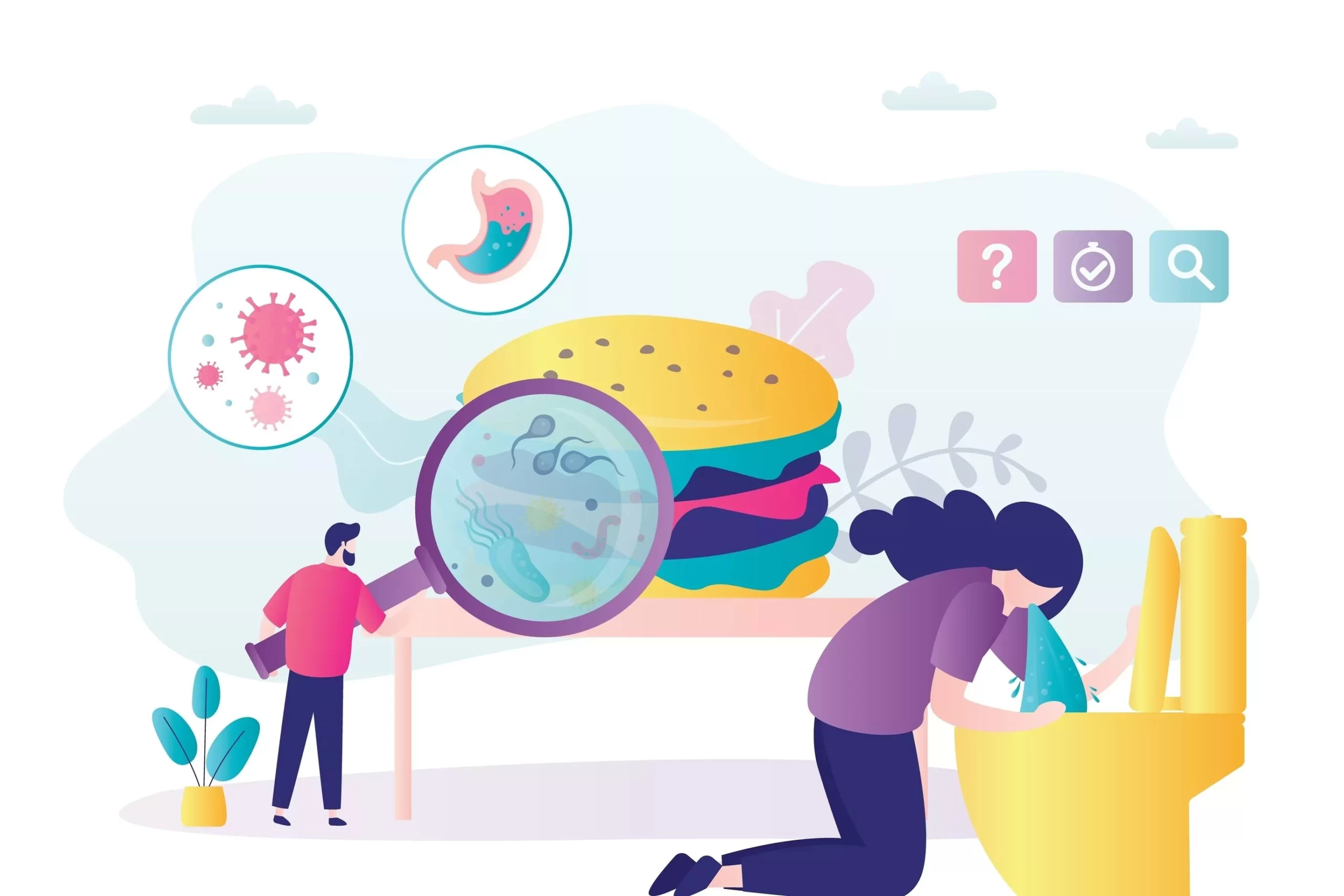No products in the basket.
Introduction:
Concerning food safety, childcare facilities provide a unique set of challenges. Children have different dietary demands, allergies, and food preferences, making it difficult to prepare healthful meals.
As a result, childcare providers must acknowledge the need to adhere to food safety rules to protect children’s health and well-being.
When it comes to childcare, safety is of the utmost importance. Children’s physical protection must be ensured, as must their health and well-being. All food is handled and cooked in a safe daycare setting. In this blog post, we’ll go through the steps that must be taken to ensure food safety in childcare settings.
The Importance of Food Safety
Childcare is an important part of many families daily life. Implementing food safety safeguards to protect children and people in childcare settings is critical. Food safety is especially important for children since they are more vulnerable to food-borne infections.
This information is included in childcare programs to assist caregivers. Food safety rules must be followed in the United Kingdom to safeguard food quality and children’s health.
In childcare settings, food safety must be addressed. Food-related disorders can cause vomiting, diarrhoea, and stomach pain in children. Certain foods can cause allergic reactions.
The Importance of Proper Food Handling
Finally, the safety of children should be a top priority for everybody involved in childcare, and food safety is critical. Caregivers should be aware of the risks associated with food-borne infections and the precautions that must be taken to avoid them. Childcare facilities may create a safe environment for children and conscientious people.
Because most childcare providers must complete Childcare courses, they know and can follow food safety regulations. Caregivers should also be aware of unique childcare regulations in the United Kingdom. They may differ depending on where the daycare facility is situated.
Food safety procedures are straightforward to execute and consist of fundamental actions. For example, cleaning hands before preparing food and storing food at the right temperature. Use separate containers for raw meats, vegetables, fruits, and other items when storing raw food, and ensure sure all packaging is intact.
All leftovers should be discarded promptly, and no food should ever be kept at room temperature for a long time. Finally, individuals who work with food should always wear protective gloves to reduce the risk of contamination.
By implementing these easy precautions, childcare providers can establish a safe environment for children and staff. It is also vital to investigate local childcare regulations in the United Kingdom. This will help childcare providers follow any particular local requirements, ensuring the safety of everyone in the daycare setting.
All childcare workers should obtain basic food safety, hygiene, and nutrition training. Keeping them up to date on childcare regulations and standards in the UK. Childcare providers should maintain high food safety standards in their childcare settings by staying current on childcare guidelines and watching for any issues.
The Risks of Poor Food Safety in Childcare Settings

The hazards presented by poor food safety regulations in childcare settings are too great to ignore. In the United Kingdom, government childcare establishments are subject to severe safety rules. Food preparation, storage, and handling are all required tasks.
Unfortunately, not all daycare centers follow these guidelines. This can lead to a variety of major issues for youngsters. Poor food safety regulations in daycare can endanger the health of young children.
Examples include food poisoning, allergies, and starvation. Caregivers must be aware of the risks and take precautions to limit the risk of food poisoning. If a kid becomes ill due to the carelessness of a daycare provider, the government may take action against the institution.
Aside from health concerns, lax food safety rules can influence the quality of care. Food decay quickly if not properly cooked or stored, leaving children malnourished. This may result in a decline in educational achievement.
Caregivers must understand the risks associated with poor food safety standards in childcare settings and take action to ensure that all criteria are met.
The Responsibility of Caregivers
Caregivers must keep food safety in mind when serving meals in childcare settings. Childcare facilities must follow federal guidelines, including food storage and handling restrictions. Caregivers must take precautions to avoid difficulties. This might range from checking temperature temperatures to separating the stuff.
Caregivers should clean and sterilise surfaces and equipment to prepare or store food. Cutting boards, for example, as well as silverware and plates. They should also wash their hands well before making and serving meals, and if possible, use gloves.
Finally, caregivers must communicate any food safety issues to the parents of children in their care. They are aware of the hazards connected with inadequate food safety measures.
Food Safety Tips for Childcare Services
To ensure food safety in childcare settings, childcare providers and parents must take the required precautions. The UK Government has developed suggestions for preserving food safety in childcare that may be used as a guide. Here are some suggestions to keep in mind:
- Educate Caregivers and Employees: Ensure your caregivers and staff understand the importance of food safety. They should teach the fundamentals of food hygiene. Such as hand washing and cross-contamination avoidance.
- Examine Food Quality: Make sure to check the quality of the food supplied in your daycare setting on a regular basis. Check that it keeps and is within its end date.
- Cleanliness: Ensure all surfaces, utensils, and food storage containers are well-cleaned and sanitised. This will assist in avoiding the spread of germs and other ailments.
- Have an Allergy Protocol: Establish a system for labelling items containing possible allergies and educate workers on correct food handling methods.
- Food Preparation: Ensure all food is properly prepared and cooked to the right temperature to destroy germs. Properly store leftovers and completely reheat them before serving them again.
- Follow the Government Standards for Childcare in the United Kingdom: The government has set safe food handling, storage, and preparation guidelines. These instructions must follow to limit the danger of food contamination.
- Attend Food Safety Courses: Caregivers might consider attending food safety courses to raise knowledge about correct food handling procedures and limit the risk of infection.
These tips help you ensure food safety in your daycare business. Following these rules can help to protect children from the hazards of insufficiency. Food safety requirements are met while a safe atmosphere for development and learning is provided.
Food Safety in Health and Social Care
This is an essential component of health and social care. It may complete in a variety of ways. For instance, safe handling, storage, preparation practices, and regular facility inspections and monitoring.
Meal safety is particularly critical in health and social care settings. Many persons served may be prone to foodborne illness due to underlying health conditions.
As a result, personnel must get proper food safety training. Facilities follow tight norms and procedures to reduce the risk of foodborne disease. Among the critical food safety topics in health and social care are:
- Keeping food at the proper temperature to prevent dangerous microorganisms from growing
- Personal hygiene and proper handwashing
- Cleaning and sanitation of equipment and surfaces on a regular basis
- Keeping raw and cooked foods separate to avoid cross-contamination
- Making use of clean water and raw resources
- It is also critical to verify that any food provided is correctly labelled.
Also, to these safeguards, frequent facility inspections and monitoring are necessary to meet food safety requirements. This can do through regulatory agency audits, inspections, and internal quality assurance programs.
The Relationship Between Child Health and Food Safety
In childcare settings, food safety and child health are intertwined. Proper food handling and preparation and periodic facility inspections and monitoring are essential for ensuring that the food provided to children is safe to eat and does not cause illness or infection.
Children at childcare facilities are more vulnerable to foodborne infections. Because their immune systems are still developing and their increased exposure to other children and the shared facilities and equipment in daycare centres. They may be more vulnerable to dangerous bacteria and other illnesses.
Staff must train in food safety to ensure food safety and protect children’s health in childcare centres. Facilities have strict policies and procedures to cut the risk of foodborne illness. This can include measures such as:
- Regular handwashing and personal hygiene
- Proper food handling and storage
- Regular cleaning and sanitation of equipment and surfaces
- Separating raw and cooked foods to prevent cross-contamination
- Using safe water and raw materials
It’s also important to ensure that food is served at the correct temperature and that any allergen information is communicated to the parents and caregivers.
Childcare centres should have a well-rounded nutrition program for children. Providing a balanced diet is important for children’s health and development. It is also important for their energy levels to participate in all activities provided by the childcare centre.
Regular inspections and monitoring of facilities by regulatory agencies and internal quality assurance programs are also important. Ensure that food safety standards are met and that the children are safe from foodborne illness.
Safe Food Handling in Childcare: Best Practices and Recommendations
Safe food handling is vital in childcare facilities to guarantee that the food supplied to children is safe and does not cause disease or infection. Here are some best practices and suggestions for safe food handling in childcare centres:
- Proper handwashing: Staff should wash their hands often with soap and water, especially before handling food and after using the toilet, changing diapers, or coming into touch with any other possible sources of infection.
- Food storage: Food should be stored at the proper temperature to avoid the formation of hazardous microorganisms. This includes keeping hot foods hot and cold goods cold. Using thermometers to check food temperatures and storing perishable items in a refrigerator or freezer.
- Food preparation: To avoid impurities, meals should be prepared clean and sterilised, with separate cutting boards and utensils for raw and cooked foods. Foods should also be prepared to the correct temperature to kill hazardous microorganisms.
- Cleaning and sanitation: Equipment and surfaces should be cleaned and sanitised to avoid the spread of hazardous microorganisms. This involves cleaning and sanitising counters, cutting boards, and other surfaces.
- Foodservice: Food should be provided at the proper temperature. And any leftovers should be refrigerated or thrown as soon as possible.
- Staff Training: All employees should get regular food safety training and instruction. They should know the latest food safety legislation, standards, and best practices.
Following these best practices and suggestions can help childcare facilities guarantee. Their food is healthy and the children in their care are safe from foodborne diseases.
Summary
Finally, food safety in childcare settings is critical to children’s health and well-being. Childcare providers must follow basic food safety rules. Temperature control, cleanliness and sanitation, and cross-contamination prevention are only a few examples.
Food safety precautions should be taught by staff, and parents may help by advising the daycare of any food allergies or sensitivities and educating their children about food cleanliness. Notifying the local public health department is crucial. Isolate everyone who has the ailment and any contaminated food or surfaces.
Investigate the source of the sickness and put measures in place to keep it from spreading. Furthermore, and offer necessary medical treatment to individuals who have been harmed.
FAQs
Where can I get Early Years food hygiene training?
It is, first and foremost, far more adaptable. Our courses are available 24/7 from any device with an internet connection. Furthermore, you may pause and continue your course as often as you need, making it ideal for hectic schedules. When working with children, we understand how easy it is to diverge from crucial responsibilities! You’ll also get quick access to the course and certificate after you’ve completed it.
How can staff members ensure food safety in childcare settings?
Employees in childcare settings can maintain food safety by:
- Before handling food, use adequate handwashing practices
- Keeping the kitchen and eating area clean and clutter-free
- Following food storage, preparation, and serving rules
- Maintaining food safety training and certification.
How can parents help ensure food safety in childcare settings?
Parents may assist in maintaining food safety in childcare settings by:
- Communicating any dietary allergies or sensitivities their kid may have to the daycare personnel
- Inquire about the childcare’s food safety rules and practices.
- encouraging their youngster to wash their hands before eating
- Educating their child on the significance of food safety and good eating habits.
What are the recommended food safety practices for childcare providers?
Some food safety precautions for daycare providers include:
- Keeping food at the appropriate temperature to avoid bacterial development
- Washing fruits and vegetables properly
- Cooking meats at the proper internal temperature
- Avoiding cross-contamination by using separate cutting boards and utensils.
- Using appropriate handwashing methods before handling food
- Maintaining a clean and clutter-free kitchen and eating area
- Observing food storage, preparation, and serving rules
- Keeping up with food safety training and certification
What should be done in case of a foodborne illness outbreak in a childcare setting?
In the event of a foodborne illness outbreak in a daycare facility, the following steps should be taken:
- Inform the local health department right away.
- Isolate the infected persons as well as any contaminated food or surfaces.
- Investigate the source of the sickness and put steps in place to prevent it from spreading further.
- Provide proper medical attention to individuals afflicted
How can parents ensure their child’s food is safe in childcare?
Parents may guarantee that their child’s food is safe at childcare by:
- Communicating any food allergies or sensitivities their kid may have to the daycare staff Inquiring about the childcare’s food safety rules and procedures
- encouraging their youngster to wash their hands before eating
- Educating their child on the significance of food safety and good eating habits
- During your visit or tour of the daycare facility, take note of the food preparation, storage, and serving areas.




